Things You'll Need
1 to 1 1/2 inch thick table or counter top
Grinder body with clamping mechanism
Handle assembly
Grinder blades/plates
Hex or wing nut and/or collar
Rubber or wood wedges
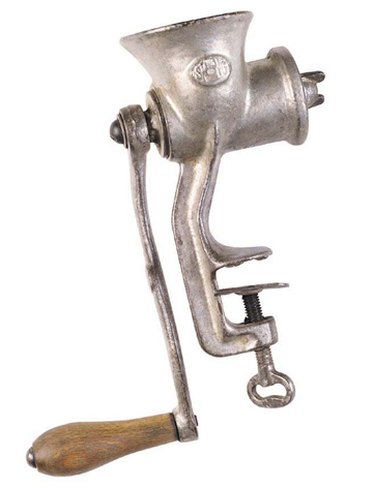
Manual meat grinders are not a thing of the past. Easy enough to use, they can provide the ground meat lover with a reliably healthy alternative to purchased ground meats. Grinding your own meat allows you to control the quality and quantity of the product. Assembling a manual or "hand" meat grinder is something just about anyone can do with a little organization.
Step 1
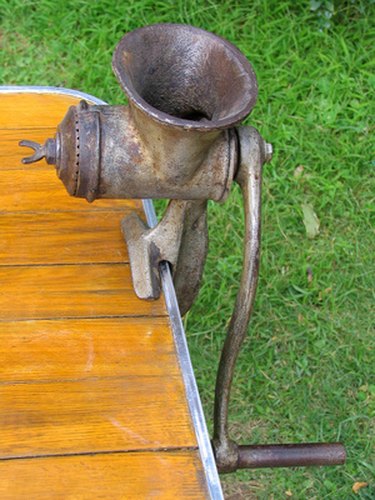
Make sure the grinder parts are free of rust (see tips below for eliminating rust), clean and dry. Parts may vary, but generally, the grinder consists of a main body, which clamps to the surface of the table or counter, a handle with screw-type feeder, a metal plate and cutting blade and a nut or collar.
Video of the Day
Step 2
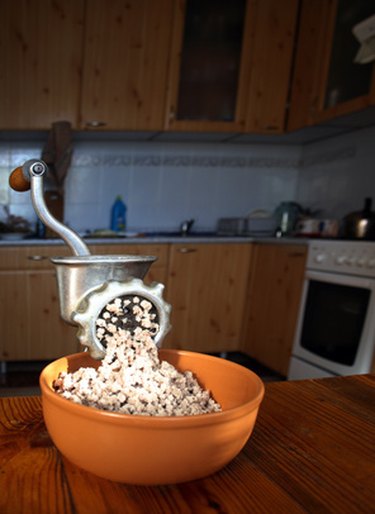
Place the handle with feeding screw into the main body of the grinder. The handle will need to turn freely once it is mounted, since rubbing will impede the grinder's cutting and extruding action as well as damage the work surface. You may need to use the rubber or wood wedges to secure the grinder to your work surface and protect the underside of your work surface.
Step 3
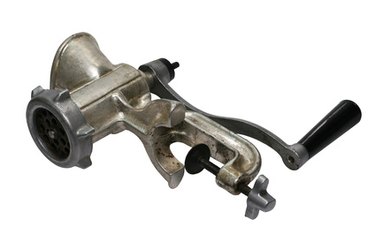
Apply the cutting blade to the bolt protruding from the large, screw-like portion of the handle, then the extrusion plate. The smaller the holes in the extrusion plate, the finer the ground meat will be. Newer models with a collar have a shorter mounting bolt that holds the cutting blade and extrusion plate in place. In older models, the mounting bolt is longer and the plates and blades are held in place by a hex nut or wing nut; often there is only one cutting blade and no extrusion plate.
Step 4
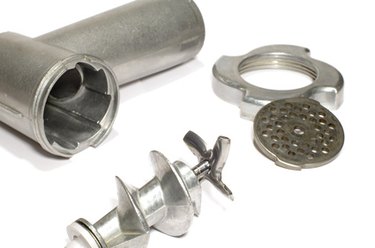
Mount the grinder onto a stable work surface once it has been assembled, using the wedges to secure it to the underside of a table or counter top 1 to 1 1/2 inch thick. The grinder body should not move when the handle is turned and the handle should turn completely and freely. Once tested and secured properly, grinding can begin.
Step 5
Wash your grinder in warm water with a small amount of dish soap, dry thoroughly after use, and apply a light coating of cooking oil to keep rust from forming. Store in a cloth or paper bag in a dry area. Proper cleaning (see tips below) and storing of your grinder and all its parts will ensure many years of use.
Tip
After grinding is complete, use dry crusts of bread to get out the remaining bits of meat from the grinder.
Warning
Blades are sharp and must be handled carefully.
Whenever putting meat pieces into the grinder, take care to avoid getting fingers inside the grinder as injury could result.
Using a tool to push meat or food into grinder can result in damage to the tool and/or the grinder. The meat or food will be drawn down into the grinder by the screw-piece's action; all you need do is turn the handle.
Video of the Day